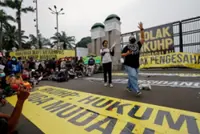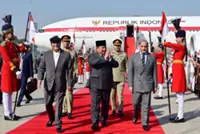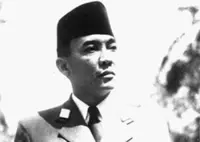JAKARTA (The Jakarta Post/Asia News Network): Jakarta’s traffic problem has gotten so bad it has forced the city to enlist artificial intelligence’s (AI) help to solve the perennial problem.
The Jakarta Transportation Agency is working with Google to install 20 AI-powered traffic lights across the city. These lights use AI to analyse the optimal green light duration based on the number of vehicles passing through and calculated time they need to go from one traffic light to another.
Already a subscriber? Log in
Save 30% OFF The Star Digital Access
Cancel anytime. Ad-free. Unlimited access with perks.





